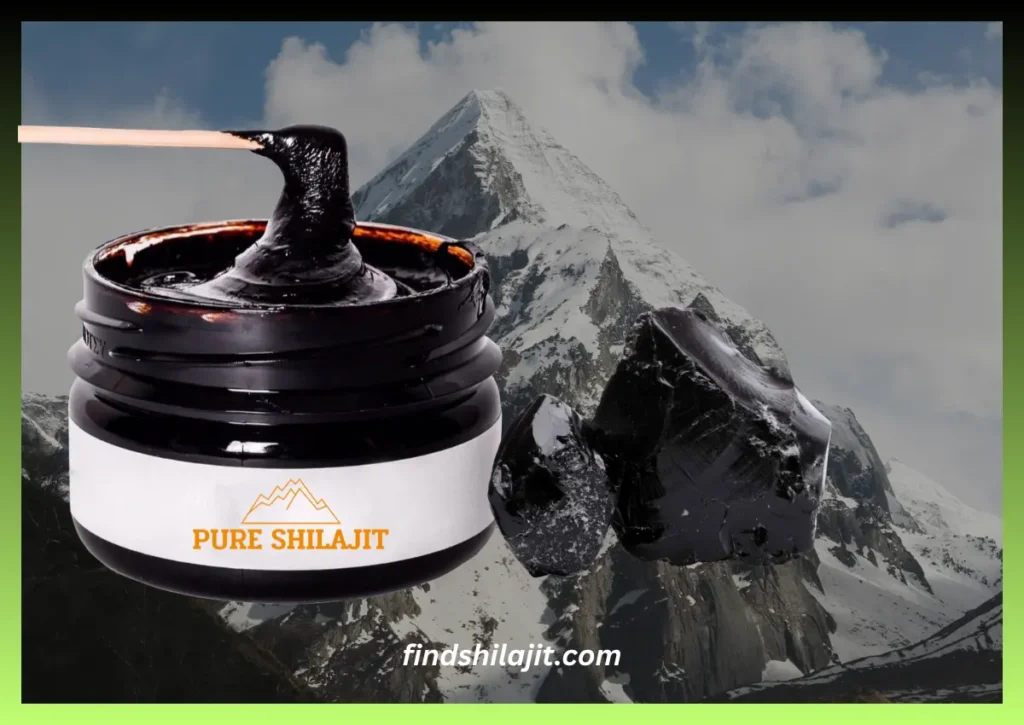As Shilajit gains popularity among wellness enthusiasts, a common question arises in a traveler’s mind: Can I bring Shilajit on a plane? Whether it’s for energy, cognitive support, or overall health, many travelers want to know if this ancient resin is legal, safe, and allowed in carry-on or checked luggage.
In this blog, we’ll cover everything from Shilajit’s legality across countries to practical travel tips for carrying it safely.
What is Shilajit?
Shilajit is a naturally occurring exudate, primarily composed of humic substances and mineral-rich organic matter, that oozes from rocks in high-altitude mountain ranges such as the Himalayas and Altai.
Formed over centuries through the decomposition of plant material under specific geological and climatic conditions,

Shilajit is characterized by a dark, tar-like consistency and high concentrations of fulvic acid, humic acid, and trace minerals.
Pharmacological and ethnomedicinal studies indicate that Shilajit exhibits adaptogenic, antioxidant, and bioactive properties.
Traditional Ayurvedic and Unani medicine systems have utilized Shilajit for its purported benefits in enhancing mitochondrial energy production, cognitive function, hormonal regulation, immune support, and overall vitality.
Modern formulations include resin, powders, capsules, and gummies, which facilitate standardized dosing and greater ease of use for both clinical and consumer applications.
Whether you call it Shilajit, Mumiyo, or Mineral Pitch, understanding its legal status is essential before taking it on a plane.
General Travel Rules for Supplements
When it comes to traveling with supplements, most airlines follow TSA and international regulations.

Generally, powdered or resin-based herbal supplements are allowed in both carry-on and checked luggage, but there are some important guidelines:
- Carry-on vs checked luggage: Resin or capsules can be packed in small quantities in your carry-on. Liquids or pastes over 100ml may need to go in checked baggage.
- Labeling: Keep Shilajit in its original packaging with the Certificate of Analysis (COA) if possible.
- Declaration: Some countries may ask you to declare herbal supplements at customs.
Additional Tip: Always check your airline’s rules before flying, as regulations may vary by carrier and country.
Country-Specific Legality
United States
Shilajit is legal as a dietary supplement in the U.S. The FDA regulates it for safety and labeling, but it is not approved as a medicine.
A Prop 65 warning may appear on some products due to naturally occurring minerals like lead. This does not make Shilajit unsafe but ensures transparency.
Canada
Canada has stricter rules. Health Canada has issued warnings about Shilajit containing heavy metals, and only products with market authorization are allowed. Some unverified Shilajit imports may be seized at the border.
United Kingdom
Shilajit is legal in the UK if it complies with Food Standards Agency (FSA) regulations. Products must meet safety and labeling standards.
Australia
Australia restricts Shilajit under Therapeutic Goods Administration (TGA) rules. Unverified products may be stopped at customs.
Other Countries
Shilajit is legal and widely used in India, Nepal, and many EU countries, but travelers should always check local regulations before flying internationally.
Is Shilajit Legal for Athletes and Sports Travel?
Athletes often ask whether they can carry Shilajit for competitions. According to the World Anti-Doping Agency (WADA), Shilajit is generally not banned.
However, athletes must ensure the product is purified and third-party tested, as contaminated supplements may contain banned substances.
Traveling with Shilajit for sports requires careful documentation, such as lab certificates and ingredient lists, especially for international competitions.
Safety Concerns When Traveling with Shilajit
Shilajit’s benefits are well-documented, but safety is critical, especially when traveling:
- Heavy metal contamination: Raw or unpurified Shilajit may contain lead, mercury, or arsenic. Always choose lab-tested products.
- Allergic reactions: Some people may experience mild allergies. Try a small dose first.
- Overdose risks: Excess consumption can cause nausea, dizziness, or digestive issues. Follow the recommended dosage.
- Interactions with medications: Consult a healthcare professional if taking blood thinners or other medications.
By prioritizing purity and verified brands, you reduce the risk of complications during travel.
How to Choose a Safe and High-Quality Shilajit
Travelers should focus on these points to ensure safety and legal compliance:
- Demand third-party testing: Lab results should confirm low heavy metal content.
- Look for a Certificate of Analysis (COA): It shows purity and mineral content.
- Verify the source: High-altitude regions like the Himalayas or Altai produce the most potent Shilajit.
- Check purification methods: Modern purification retains beneficial compounds while removing contaminants.
- Original packaging: Helps in customs checks and proves authenticity.
- Small quantities: Carry only what’s necessary to avoid scrutiny.
- Labeling clarity: Clearly mention Shilajit type (resin, capsules, powder).
- Check reviews: Verify the brand’s reputation and transparency.
- Consult healthcare professionals, especially if you are on medications or competing in sports.
- Avoid miracle claims: Genuine Shilajit is a supplement, not a cure.
Tips for Traveling with Shilajit
- Carry in original container: Helps prove authenticity at airport security.
- Keep COA handy: If customs asks for proof of purity.
- Use small amounts: One or two capsules or a small resin container is sufficient.
- Avoid mixing with other substances: TSA may flag powders mixed with unknown powders.
- Declare if necessary: Some countries may require a declaration of herbal supplements.
Frequently Asked Questions
1. Is Shilajit illegal in some countries?
Shilajit is restricted in some countries due to heavy metal contamination concerns but is generally legal in most Western countries when lab-tested.
2. Why is Shilajit illegal in some countries?
Countries like Canada restrict unverified Shilajit imports because raw resin may contain toxic heavy metals like lead and arsenic.
3. Can I take Shilajit on a plane in the US?
Yes, Shilajit is legal and allowed in carry-on or checked luggage if packaged properly.
4. Is Shilajit legal for athletes?
Yes, but only if third-party tested and verified to avoid banned substances.
5. Can I take Shilajit internationally?
Yes, but always check local regulations and import rules before traveling.
Conclusion
So, can you take Shilajit on a plane? Yes — as long as it is authentic, lab-tested, and follows airline and customs regulations. Its legal status varies slightly by country, but with proper documentation and purification, it can be safely carried for personal use.
Travelers should focus on quality, COA verification, and small quantities to ensure compliance. Shilajit is not a miracle cure, but it remains a powerful natural supplement with centuries of use, offering energy, cognitive support, hormonal balance, and overall wellness.
If you’re planning to bring Shilajit on your next trip, prioritize trusted brands, understand regulations, and enjoy the benefits of this Himalayan super-resin safely.
Also Read: Is Shilajit Legit and 100% Real?
References:
Can You Take Shilajit on a Plane? Everything You Need to Know for Hassle-Free Travel
Shilajit: A Natural Phytocomplex with Potential Procognitive Activity
Disclaimer
This article is for informational purposes only. Please consult a licensed healthcare provider before starting any new supplement, especially if you are pregnant, breastfeeding, or on medication.



